BIOGRAPHY
David Nevue is an internationally recognized pianist, composer, recording artist and "icon of the genre" (to quote Jamey Osborne of Audiosyncracy at the 2015 ZMR Music Awards). David has released seventeen albums of his original piano works and arrangements, including two "Piano Album of the Year" winners; Overcome (2005) and Winding Down (2015). His latest album, 2019's In the Soft Light of Grace, went to #1 on both the Amazon.com and iTunes music sales charts for his genre and entered the top 5 on Billboard's album charts. David's music has surpassed 2 Billion spins on Pandora Radio and other streaming services, a remarkable feat for an independent artist. David’s music can be heard virtually anywhere you listen to music, including Spotify, Apple Music/iTunes, Amazon Music, Alexa ("Alexa, play David Nevue"), YouTube, SiriusXM Satellite Radio, Music Choice and Pandora Radio.
David is a self-taught pianist. During his teenage years, he pursued creative writing - especially poetry - as his preferred vehicle for artistic expression. That began to change his freshman year of college when his roommate introduced him to the piano music of George Winston. David had never heard anything like it… "solo piano" that was neither classical nor jazz. Captivated and inspired, David began to compose "song poems" of his own at the piano. This eventually led to his first album of piano works, The Tower, written as a soundtrack for one of his short stories. By his late twenties, his creative efforts were focused almost entirely on music, and he was releasing a new album of compositions every couple of years.
An early adopter of digital media, David found success selling his CDs online while growing a mailing list of buyers and fans. To document his processes, in 1997, David wrote and published the first edition of his book, How to Promote Your Music Successfully on the Internet. Updated regularly over the next ten years, How to Promote became the authoritative work (and even college textbook) of its day on the topic of online music marketing. By 2001, the income from David's music-business ventures enabled him to quit his "day job" at Symantec Corporation. Shortly thereafter, he founded Whisperings: Solo Piano Radio, the first internet radio broadcast to feature solo piano music exclusively. David's work as both independent artist and entrepreneur led to feature articles, interviews and mentions in BusinessWeek (now Bloomberg), The Wall Street Journal, Rolling Stone and numerous other blogs and publications.
In the mid 2000's, David's name gained widespread recognition due in part to the proliferation of his music on Pandora Radio. A seasoned performer and storyteller, David began to book, produce, and promote his own concert tours across the USA in churches, piano galleries, schools - and even in fan's homes. In his capacity as the founder and CEO of Whisperings radio, he's produced and performed events with seventy-five other pianists, including contemporary piano legends David Lanz, Peter Kater, Wayne Gratz and Suzanne Ciani.
David continues to compose music, and greatly enjoys hiking and photography.
David Nevue is proud to be an official Shigeru Kawai artist.
Watch a short concert performance at the ZMR Music Awards.
Details for those Interested in the Minutia:
The Formative Years (1965-1983)
David was born in November 1965 and lived his young life in Coos Bay, Oregon. His mother, a diner cook and waitress, took on the job as "full-time amazing mom" while his father worked at Georgia-Pacific, the local lumber mill. If you knew David in those days, you never would have expected him to grow up to become a musician. His family was the furthest thing from musical - there wasn't a musician (or even a singer) in the bunch. Even so, his grandparents on his mother's side, who lived nearby, had an old-timey electric organ that sat unplayed at their home. Unplayed, that is, until David discovered it. He had a natural, inborn ear for music, and when he was at "grandma and grandpa's" he'd gravitate toward that keyboard, sit down, and "find", by ear, melodic lines he heard on the radio and TV. His musical influences during these impressionable years? Beyond listening to his mother's Elvis, Paul Anka and Beach Boys records, David was an avid fan of The Monkees. To this day he credits the Monkees TV show with instilling in him the desire to be a musician.
When David was 12, the pianist at his church agreed to help him get started in formal piano lessons. His parents even found and purchased an inexpensive ($50) upright piano for him at an estate sale! However, after some dramatic family events, a move from Oregon to Colorado and three different piano teachers in three years, David quit his lessons. By the age of 15, he had little interest in classical music or hymns and became an unmotivated student. His primary creative outlet at that point was writing poetry, and while he still enjoyed playing the piano, it was more of a "just for fun whenever" thing. He would occasionally try his hand at writing his own "rock" songs (with lyrics) or teach himself songs he heard on the radio - just as he had when he was a little kid. The music David was into at the time? Alternative "New Wave" music, the Police, Supertramp, the Alan Parsons Project, the Electric Light Orchestra, Peter Gabriel, Kansas and Jethro Tull to name a few.
Although playing the piano wasn't David's "forte," he was still very active in music - as a singer - in his high school concert choir, madrigal group and jazz/dance choir. He performed in his first musical, Kiss Me Kate, his senior year.
The College Years (1983-1987)
After graduating from General William Mitchell High School in 1983, David returned to his home state of Oregon to attend George Fox College (now University) to pursue a degree in music. However, after a single semester, David dropped his music major, having come to realize that teaching music - which was what the major was geared toward - was not a practical choice for him. About this time, as he was wondering "What now?," David's college roomate introduced him to the piano music of George Winston. That changed everything. Prior to hearing Winston's music, David's definition of "solo piano" would have been straight-up classical or jazz, neither of which drew his interest. Winston's music was entirely different - it was melodic, with a very "song-like" structure he could relate to. Fascinated by Winston's impressionistic, easy-to-listen-to style, David began to explore composing music at the piano in a similar vein. During this period of exploration and renewed interest in the piano, David was taking an intense music theory course (John Bowman, instructor) that opened his eyes up to the keyboard in a new way. For the first time in his life, David could play the piano not only by ear, but to a degree, through pattern and chord/key recognition. Even better, one of the perks of having been a music major was that David was assigned a campus work/study job in the Music Department, which meant he had his own key to the music building and all the practice rooms. This was a huge blessing, as he could go in late at night, undesturbed and unseen, and sit alone at the piano and experiment for hours.
By his Sophomore year, David's small circle of friends had evolved to include other musicians, actors and fun, creative personalities. Having left his music major behind, David turned his attention to studies in marketing, the theatrical arts and creative writing. Ouside the classroom, David continued to experiment with music. He saved up his campus work-study earnings and purchased a Roland Juno 106 synthesizer. He played both piano and synth and wrote songs for several "almost garage bands" comprised of an ever-changing assortment of dorm-mates and friends. During this time of bursting creativity, his musical tastes and inspirations become more ecclectic. The soundtrack of his life became dominated by the music of Rush, Pink Floyd, U2, Kate Bush, the Irish band Clannad, art-rock-poet Jeff Johnson and the 70's progressive piano-poetry-rock band Renaissance. Oh, and he STILL loved the Monkees.
Much of David's musical output during his time at George Fox wasn't so much solo piano as it was piano-based songs with added synthesizer, lyrics and vocals. In 1985 (his Sophomore Year), David participated in a college album project called Reception, which gave him the opportunity to record one of his original songs in a "real, live recording studio." In the two-hour time slot alloted, David produced his first-ever studio recording... Midnight Moonlight. The arrangement featured David on piano and vocal alongside one his musical mentors, fellow pianist David Gilmore (not the Pink Floyd David Gilmore!), who played synth. Two years later, David participated in a second college album project called Just Passin' Thru. This time David contributed two songs; the first, under his own name, was called Whispering and featured David on piano/synth/lead vocal, Linda Dobbeck on flute and backing vocals, and Steve Poor on percussion (and voice effects). The second tune was a song called Winter Walk, released under the "faux" band name London Calling. On this one, David played piano and synth, his college roommate Chris Divine sang the lead and Steve Poor played percussion and bells. Over time, two of these three songs - Midnight Moonlight and Winter Walk - evolved into the solo piano versions you hear on David's first album The Tower and his 2005 album Overcome. Somewhat ironically (and explained shortly), the song Whispering was never developed beyond this one very rare recording.
Despite these musical explorations, during his time at college David wasn’t really known for his musicianship. Outside his small circle of band-mates, few knew he played. He was very secretive about his piano work and he limited his composition time to the practice rooms late at night. David did spend time in the spotlight in college - not as a musician, but as an actor. By his junior year, he became very involved in theater, and played the part of Demetrius in Shakespeare's A Midsummer Night’s Dream as well as supportive roles in Oh it’s Just War, J.B. and You Can't Take it With You. By his senior year, he had played lead roles in both Coyote Goes Upriver and a stage adaptation of C.S. Lewis’ The Screwtape Letters. The latter was his favorite, as not only did he play the main "human" character, “Michael Average,” he also composed the synthesizer-based score for the stage play. Three of the melodies in that score were later developed into solo piano compositions called The Assimilation, Solitude and Undertow. These eventually appeared on David’s albums The Tower, While the Trees Sleep and Open Sky respectively.
His senior year, David was selected for the six-person improvisational theater troupe Intermission and for a short time, he interned with Chrysalis Theater Company. On the creative writing side, David was editor and co-editor (along with Chris Divine and Fred Tillman) of his college literary arts magazine Wineskin, which featured poetry and prose selected from the student body. David also self-published a book of his original poetry called These Winter Months. Bottom line, if you were only casually acquainted with David in college, you probably knew him as an actor or poet - not as a musician - but it was during this time - and with these theatrical experiences - that David developed his ability to perform on stage, absorb and redirect the energy of "the moment" and play to an audience.
David’s first public performance as a "solo pianist" came in 1987, near the end of his senior year. He debuted his original piano composition, The Princess (which later appeared on The Tower), for a college-wide talent show. When he finished playing the song, David requested three music notes from the audience and proceeded to improvise a theme on the spot. David took first place at this competition, winning $50 - his first "music made money."
1987 was also the year David met Julie, the love of his life. She was an accomplished violinist and, like him, played the piano. Naturally, they had a love of music in common.
The Transition Years (1987-1995)
After graduating from George Fox College in 1987 with a B.A. in Communication Arts (and a atrong emphasis on Writing and Literature), David purchased a Helpenstill Roadmaster 64 piano for its band-worthy portability (check out this video of the device) and played piano, keys, wrote and sang as part of the progressive rock band "Thorn." The band's core members (other than David) included Steve Poor (drums & guitar) and David Day (bass), along with supporting members Joy Poor (vocals/percussion) and his soon-to-be wife Julie (vocals/violin). The band's musical style was a blend of Kansas and Supertramp with a twist of folk. After just two short years in the band, David and Julie married and David decided the time had come to leave his "rock star" days behind to focus on his new marriage and earning a paycheck.
David’s early twenties were creatively strained. Once he left college, he no longer had easy access to a piano (he still had his Helpenstill, but that only had 64 keys!), making it a challenge to practice and even more difficult to compose new songs. Fortunately, he and his wife attended Tigard Friends Church near their apartment, and the church pastor, Tim Henley (a fantastic pianist and former touring artist) was gracious enough to allow him to stop in and practice on the church piano after his work day. At this time, David had a job in the desktop publishing business in Tigard, OR (a suburb of Portland) and David composed his music on the side.
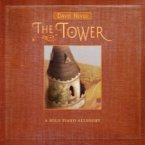 By 1991, David had a dozen original solo piano songs ready to record, but had no idea where to record his music. He consulted with local Pacific NW artist Jeff Johnson, whom David considered a great musical inspiration and - based on his recommendation - ended up at the home studio of Billy Oskay (of Nightnoise fame). There, he recorded his first album, The Tower, in a single studio session. The ten track debut album was based on a short story David had written while in college. He took that story and put it to music, making the album a soundtrack of sorts. David released the finished album in 1992 - in cassette format - and played his first "Album Release Concert" at his church. David sold his "cassette" album to friends, family and co-workers, then printed up flyers about the release and mailed them to every person he'd ever known in his life that he could find an address for. Any money David made from the sale of the album he set aside to invest in possible future albums.
By 1991, David had a dozen original solo piano songs ready to record, but had no idea where to record his music. He consulted with local Pacific NW artist Jeff Johnson, whom David considered a great musical inspiration and - based on his recommendation - ended up at the home studio of Billy Oskay (of Nightnoise fame). There, he recorded his first album, The Tower, in a single studio session. The ten track debut album was based on a short story David had written while in college. He took that story and put it to music, making the album a soundtrack of sorts. David released the finished album in 1992 - in cassette format - and played his first "Album Release Concert" at his church. David sold his "cassette" album to friends, family and co-workers, then printed up flyers about the release and mailed them to every person he'd ever known in his life that he could find an address for. Any money David made from the sale of the album he set aside to invest in possible future albums.
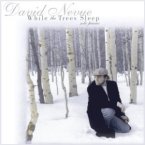 David continued to write for piano in his spare time (he was working 50-60 hour work weeks at his primary job at this point). Eventually, he saved up enough money (and composed enough songs) to record his second album, While the Trees Sleep. This time, David recorded at White Horse Studios in Portland with engineer Bob Stark at the helm. Released in 1995, While the Trees Sleep was a real departure from the more dramatic sound of The Tower. While The Tower was an exploratory, experimental album, by While the Trees Sleep it was evident that David was beginning to find his sound and the unique, melodic piano style he would later become known for.
David continued to write for piano in his spare time (he was working 50-60 hour work weeks at his primary job at this point). Eventually, he saved up enough money (and composed enough songs) to record his second album, While the Trees Sleep. This time, David recorded at White Horse Studios in Portland with engineer Bob Stark at the helm. Released in 1995, While the Trees Sleep was a real departure from the more dramatic sound of The Tower. While The Tower was an exploratory, experimental album, by While the Trees Sleep it was evident that David was beginning to find his sound and the unique, melodic piano style he would later become known for.
The "Dot-com Boom" Years (1995-2001)
1995 was a transformational year for David. He took a job working for Symantec Corporation in Eugene, OR, providing telephone and BBS support for their software products (primarily Q&A Database and pcAnywhere for DOS and Windows). David found himself in the hotbed of innovation with a front row seat to the tech industry just as the internet began to boom. While testing Mosaic, the world's first web browser, David become one of the first artists to create a web site to market his music. He used it to promote his While the Trees Sleep album and to experiment with marketing ideas for selling his music on the "world wide web." Within two years, David was selling several CDs a week online while building up a mailing list of new fans from all over the world. 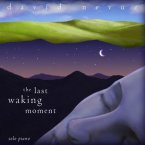 This new sales avenue allowed David to more quickly finance his next album, and in 1996, he headed back into the recording studio (this time Heavywood Studios in Portland, again with Bob Stark at the helm) to record his third album. Released in 1997, The Last Waking Moment was inspired by a dream his wife had about a face to face meeting with Jesus. David put the story of the dream to music, following a "musical soundtrack" approach similar to what he'd done for his first album, The Tower.
This new sales avenue allowed David to more quickly finance his next album, and in 1996, he headed back into the recording studio (this time Heavywood Studios in Portland, again with Bob Stark at the helm) to record his third album. Released in 1997, The Last Waking Moment was inspired by a dream his wife had about a face to face meeting with Jesus. David put the story of the dream to music, following a "musical soundtrack" approach similar to what he'd done for his first album, The Tower.
By this time, David realized that he had found a niche selling his music online. When he talked to other musicians, they either weren’t promoting their music online at all or, if they had a web site, weren’t selling much of anything. This gave David the idea to write a book to document his music marketing ideas and successes.  In November 1997, David released the first edition of How to Promote Your
Music Successfully on the Internet, which he updated periodically for fourteen years (2011 was the final edition). The book was a big hit with independent musicians and even went on to become a textbook for college music business classes. Between book sales and sales of his first three albums, he was able to very quickly start thinking about recording another album.
In November 1997, David released the first edition of How to Promote Your
Music Successfully on the Internet, which he updated periodically for fourteen years (2011 was the final edition). The book was a big hit with independent musicians and even went on to become a textbook for college music business classes. Between book sales and sales of his first three albums, he was able to very quickly start thinking about recording another album.
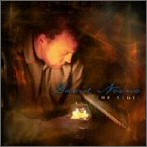 In July 1999, David released his fourth album, The Vigil (once again recorded at Heavywood.) Influenced heavily by the Psalms, The Vigil followed the events of a single, sleepless night spent in meditation and prayer. The album thematically began at midnight, and ended at sunrise the next morning. The liner notes contain a perfect example of David's multi-faceted approach to his art, blending his original poetry with scripture to express the story of the music in poetic/prose form. To this day, David considers The Vigil one of his personal favorites.
In July 1999, David released his fourth album, The Vigil (once again recorded at Heavywood.) Influenced heavily by the Psalms, The Vigil followed the events of a single, sleepless night spent in meditation and prayer. The album thematically began at midnight, and ended at sunrise the next morning. The liner notes contain a perfect example of David's multi-faceted approach to his art, blending his original poetry with scripture to express the story of the music in poetic/prose form. To this day, David considers The Vigil one of his personal favorites.
An Aside - The "Play Piano Everywhere Years" (1997-2004)
It was during the late 90's - after his move to Eugene, Oregon - that David began performing his music live at every opportunity. In 1997, he started playing piano and selling his CDs at Valley River Center Mall during all the major "gift-giving" holidays - Valentine's Day, Mother's Day, Thanksgiving and of course the two weeks leading into Christmas. David would sit at the piano and play his music for hours, day after day, improving his skills as a performer while selling CDs and interacting with passersby. He played at any venue he could find that had a piano and would let him play... local coffee shops, SweetWater's Restaurant, the 5th Street Public Market and Oakway Center in Eugene, Made in Oregon, Washington Square and Pioneer Place in Portland, and at events like the Eugene ArtWalk (in art galleries), the Festival of Trees and other fund-raisers. At every performance, David would offer his CDs for sale and encourage buyers to sign up for his mailing list. In 1999, David held his first in-home "house concert," playing Friday and Saturday night shows in his living room and seating about 35 people (squished in) each night. To fill the seats, he sent out postcard invitations to everyone on his mailing list who had signed up at his local shows. It was at these house concert events that David sharpened his skills as a storyteller and learned how to interact and engage with his audience. David continued hosting concerts in his own home two weekends a year until 2004 when an incident with "stalker"-type personality made him realize it was probably no longer a good idea to bring strangers into his home - especially with two little ones in the house. David started formally touring in 2005 (more on that below) and performed at Valley River Center Mall for the last time in 2009.
On March 9, 2000, David’s first child, Nathan, was born. This was life-changing to say the least, and many more changes were coming.
By mid 2000, it became apparent that David had a BIG opportunity to create and sell a brand new product-type based entirely on his music... sheet music downloads! Requests from fans had started to come in for sheet music and this was an entirely new sales and product opportunity. 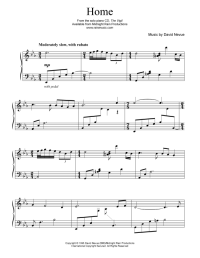 Kathy Parsons (of Wind and Wire Magazine) referred David to a well-respected transcriptionist and he had his first sheet music title transcribed... "Home" from The Vigil. The sheet music went for sale on his web site on February 2nd, 2001 and within a few days David sold his first ever "downloadable" product.
Kathy Parsons (of Wind and Wire Magazine) referred David to a well-respected transcriptionist and he had his first sheet music title transcribed... "Home" from The Vigil. The sheet music went for sale on his web site on February 2nd, 2001 and within a few days David sold his first ever "downloadable" product.
At this point, David was making as much income from his "on the side" music business as he was working his full time job at Symantec. With his Internet business booming, David saved up a year’s salary and, with that in the bank, quit his day job at Symantec in November 2001 to focus solely on his music business and other entreprenurial ventures.
The Entrepreneurial "Whisperings" Years (2001-2007)
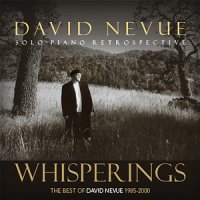 After four albums, the time had come for David to release a "best of" collection highlighting some of his most popular works. So, in 2001, he released Whisperings: The Best of David
Nevue (1985-2000), a seventeen-track collection of fan favorites from his first four albums. The collection included two "bonus" tracks, a never-before released arrangement of "I Wonder as I Wander," and an original piece, "The Night Season," which didn't make the final cut for The Vigil. Ironically, these two "previously unreleased" tracks became among the most popular on the album. The Whisperings: Best of... album as a whole has been one of David's most successful releases.
After four albums, the time had come for David to release a "best of" collection highlighting some of his most popular works. So, in 2001, he released Whisperings: The Best of David
Nevue (1985-2000), a seventeen-track collection of fan favorites from his first four albums. The collection included two "bonus" tracks, a never-before released arrangement of "I Wonder as I Wander," and an original piece, "The Night Season," which didn't make the final cut for The Vigil. Ironically, these two "previously unreleased" tracks became among the most popular on the album. The Whisperings: Best of... album as a whole has been one of David's most successful releases.
 Not long after, David released another album of original works, Postcards from Germany, this time recorded at Kung Fu Bakery Studio in Portland (still with Bob Stark) where he also recorded his next three albums. The music on Postcards was inspired by David’s travels with his wife to Germany and Austria in 1998. Each song represented a "postcard" of an event, place or adventure on the trip, making the album a musical scrapbook of sorts. Postcards marked the start of a new era for David’s music; it was the first album for which he was able to invest in an international radio campaign. Over 200 stations worldwide picked up the album, as did music subscription services such as Music Choice, Muzak and DMX. Even though it was his first active radio campaign, Postcards from Germany went all the way to #2 on the Zone Music Reporter radio charts. Beyond radio, David's song "One Night at Mozart's" from the album was a virtual hit on MP3.com, a site which was, at that time, a central hub for independently released music.
Not long after, David released another album of original works, Postcards from Germany, this time recorded at Kung Fu Bakery Studio in Portland (still with Bob Stark) where he also recorded his next three albums. The music on Postcards was inspired by David’s travels with his wife to Germany and Austria in 1998. Each song represented a "postcard" of an event, place or adventure on the trip, making the album a musical scrapbook of sorts. Postcards marked the start of a new era for David’s music; it was the first album for which he was able to invest in an international radio campaign. Over 200 stations worldwide picked up the album, as did music subscription services such as Music Choice, Muzak and DMX. Even though it was his first active radio campaign, Postcards from Germany went all the way to #2 on the Zone Music Reporter radio charts. Beyond radio, David's song "One Night at Mozart's" from the album was a virtual hit on MP3.com, a site which was, at that time, a central hub for independently released music.
One of the biggest challenges David faced as a solo piano artist was getting significant and consistent airplay on radio. After all, there weren’t any stations dedicated to "solo piano" at the time and programs that did play contemporary piano were generally of the late night, sleepy "New Age" music variety. So, seeing a need to expand the footprint of the solo piano genre as a whole, David decided to create his own radio broadcast.  In August 2003, two years after setting up and testing a similar prototype on MP3.com, David launched Whisperings: Solo Piano Radio, an Internet radio station featuring solo piano music exclusively. Whisperings was the very first broadcast of its kind and it benefited greatly from being one of only twenty or so "Internet Radio" stations available on iTunes at that time. The station's popularity exploded. Within eighteen months Whisperings was the #1 radio broadcast on the entire Live365.com Radio Network, a position it held for seven years until 2010, when David make the decision to move his broadcast to his own servers to avoid being overly-reliant on Live365's network. This decision to decouple from the Live365 network turned out to be prescient, as Live365 shut down in 2016 in part due to the Webcaster Settlement Act of 2009. As of this update (2021), Whisperings Radio continues to broadcast over a million listening hours each month and promotes the music of over 360 solo piano artists from around the world.
In August 2003, two years after setting up and testing a similar prototype on MP3.com, David launched Whisperings: Solo Piano Radio, an Internet radio station featuring solo piano music exclusively. Whisperings was the very first broadcast of its kind and it benefited greatly from being one of only twenty or so "Internet Radio" stations available on iTunes at that time. The station's popularity exploded. Within eighteen months Whisperings was the #1 radio broadcast on the entire Live365.com Radio Network, a position it held for seven years until 2010, when David make the decision to move his broadcast to his own servers to avoid being overly-reliant on Live365's network. This decision to decouple from the Live365 network turned out to be prescient, as Live365 shut down in 2016 in part due to the Webcaster Settlement Act of 2009. As of this update (2021), Whisperings Radio continues to broadcast over a million listening hours each month and promotes the music of over 360 solo piano artists from around the world.
As David's music grew in popularity, fans began to request a Christmas album. For years, David balked at the idea, having no desire to play Christmas music, but an appeal by one of his former managers at Symantec helped him see he had an opportunity to tell the story of the birth of Jesus in a new and interesting way. 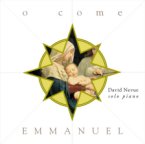 Once he caught the "vision" of it, David got behind the idea and in late 2003, released O Come Emmanuel, his first (and so far only) Christmas album. The album featured David's very unique interpretations of both popular and traditional Christmas songs. You'll note that David sticks to arranging songs that tell the traditional story of the birth of Christ, which was his intent. O Come Emmanuel rose to #2 on the ZMR charts and stayed there for the duration of the 2003 holiday season.
Once he caught the "vision" of it, David got behind the idea and in late 2003, released O Come Emmanuel, his first (and so far only) Christmas album. The album featured David's very unique interpretations of both popular and traditional Christmas songs. You'll note that David sticks to arranging songs that tell the traditional story of the birth of Christ, which was his intent. O Come Emmanuel rose to #2 on the ZMR charts and stayed there for the duration of the 2003 holiday season.
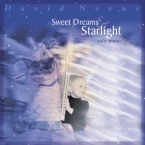 In June, 2003, David’s second child, Noelle, was born. Having two small children at home, David couldn't help but be inspired by the new adventures fatherhood brought. In May of 2004, David released his eighth album, Sweet Dreams & Starlight, made up of sweet songs, melodies and lullabies he wrote for his children. Also included on the album were three unreleased tracks leftover from previous recording sessions; his arrangement of "Greensleeves" (recorded during the O Come Emmanuel sessions), as well as "Across the Velvet Sea" and "The Face of the Deep," (both left over from the Postcards sessions). Finally, the album included "The Gift," which made its first appearance on O Come Emmanuel but was so popular David wanted to rerelease it on an album that would not be relegated to Christmas-only listening. While many consider Sweet Dreams & Starlight to be a "chidren's album", David prefers to instead think of it as a "father's album." David's son Nathan (at age 2) is featured on the album's dreamy carousel cover. Sweet Dreams topped the ZMR radio charts at #5.
In June, 2003, David’s second child, Noelle, was born. Having two small children at home, David couldn't help but be inspired by the new adventures fatherhood brought. In May of 2004, David released his eighth album, Sweet Dreams & Starlight, made up of sweet songs, melodies and lullabies he wrote for his children. Also included on the album were three unreleased tracks leftover from previous recording sessions; his arrangement of "Greensleeves" (recorded during the O Come Emmanuel sessions), as well as "Across the Velvet Sea" and "The Face of the Deep," (both left over from the Postcards sessions). Finally, the album included "The Gift," which made its first appearance on O Come Emmanuel but was so popular David wanted to rerelease it on an album that would not be relegated to Christmas-only listening. While many consider Sweet Dreams & Starlight to be a "chidren's album", David prefers to instead think of it as a "father's album." David's son Nathan (at age 2) is featured on the album's dreamy carousel cover. Sweet Dreams topped the ZMR radio charts at #5.
David’s life was about to change again, but this time, it wasn’t an addition to his family, but a loss. In October, 2003, David lost his father, a missionary, evangelist and street preacher, to cancer. Many of the songs David composed and arranged during this time reflected his coming to grips with not only the pain he saw his father suffering, but also David's inability to bridge the broken relationship he had with his father before his death. 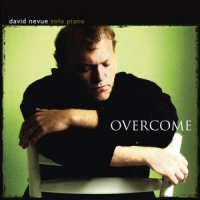 In 2005, David released Overcome, a tribute to his father’s unwavering faith and a musical testimony to relying on God’s sovereignty during difficult times. Overcome went to #2 on the ZMR charts, and was nominated for – and won – "Best Instrumental Piano Album of 2005" at the Lifestyle Music Awards. This was David's first "award" of any kind, and to this day Overcome is one of David's most well-known, respected and widely-recognized works. It was during this period of growth in the mid-2000's that David's music was first shared by Ann Voskamp on her enormously popular blog. Ann has since become a NY Times Best-Selling author (four times over) and continues to share his music with her hundreds of of thousands of followers to this day.
In 2005, David released Overcome, a tribute to his father’s unwavering faith and a musical testimony to relying on God’s sovereignty during difficult times. Overcome went to #2 on the ZMR charts, and was nominated for – and won – "Best Instrumental Piano Album of 2005" at the Lifestyle Music Awards. This was David's first "award" of any kind, and to this day Overcome is one of David's most well-known, respected and widely-recognized works. It was during this period of growth in the mid-2000's that David's music was first shared by Ann Voskamp on her enormously popular blog. Ann has since become a NY Times Best-Selling author (four times over) and continues to share his music with her hundreds of of thousands of followers to this day.
2005 also marked the beginning of David’s touring career. One big element of David’s vision for his Whisperings: Solo Piano Radio project was to create an opportunity for solo piano artists to perform concerts together. 2005 saw the first Whisperings concert in Bellevue, WA which featured not only David, but also pianists Joe Bongiorno, Joe Yamada, Mike Strickland and Alexx Carnathan. The moderate success of this show led to others, including a concert in St. Louis, MO. David had never played a concert so far from his home before and didn’t want to lose money on the trip, so he sent out an email to his e-list subscribers in Missouri, Indiana, Iowa and Wisconsin asking if anyone was interested in hosting a "David Nevue" concert in their home or church. To his surprise, he received many responses and was able to put together a short tour that included eight performance dates. That was the first "David Nevue Concert Tour." David continues to tour - as circumstances allow - to this day, and he still books his own concert tours and events simply by reaching out and connecting with fans and followers across the country.
One of the tracks included on David’s Overcome album was a heartfelt piano arrangement of It is Well With My Soul, one of his father’s favorite hymns. David's time working on that inspired him to create arrangements of other hymn favorites as well. 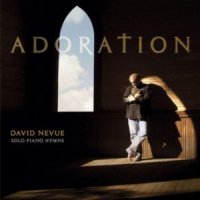 This led to David's 2007 release, Adoration: Solo Piano Hymns. Adoration quickly rose to #1 on the Zone Reporter charts, becoming David's first #1 album. Adoration was also the first of many albums David recorded at the now famous Piano Haven recording studio. Adoration: Solo Piano Hymns was only the second album ever recorded there (the first was recorded by studio founder Joe Bongiorno).
This led to David's 2007 release, Adoration: Solo Piano Hymns. Adoration quickly rose to #1 on the Zone Reporter charts, becoming David's first #1 album. Adoration was also the first of many albums David recorded at the now famous Piano Haven recording studio. Adoration: Solo Piano Hymns was only the second album ever recorded there (the first was recorded by studio founder Joe Bongiorno).
Leading up to this time, David was regularly leading worship (on guitar and sometimes piano) at his church. In doing so, he was intimately familiar with contemporary worship songs and melodies. While in the studio recording music for Adoration, David took frequent breaks to improvise on some of his favorite worship songs. This was done on a whim, but by the end of the recording session for Adoration, David had completed recordings of nine additional praise and worship songs, all improvisations. He returned to Piano Haven a year later to record more, plus a few hymns and original melodies. 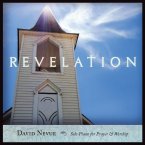 The resulting compilation of recordings became David’s eleventh album, Revelation: Solo Piano for Praise & Worship, released in 2009.
The resulting compilation of recordings became David’s eleventh album, Revelation: Solo Piano for Praise & Worship, released in 2009.
The "Family on Tour" Years (2007-2013)
With the work on Adoration & Revelation complete, David was freed up to return to his first love; creating original music. It had been five years since he'd released an album of original compositions and he was busting at the seams with new ideas. After releasing Overcome in 2005, David put thousands of miles on the road touring and performing. More often than not, he had his family along for the ride (his children were home-schooled in those days). The time they shared together, the adventures, the fun, fresh air and life experiences inspired LOTS of music! During these precious years, David composed and arranged over two dozen new songs. David took the happiest, most joyful of these and in 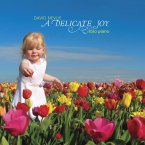 2010, recorded his next album, A Delicate Joy, an uplifting celebration of family, faith and living every moment to the fullest. The album was released in November 2011 and went to #4 on the Zone Reporter Music charts. David's daughter Noelle (at age 4) is featured on the cover and elsewhere on the album artwork.
2010, recorded his next album, A Delicate Joy, an uplifting celebration of family, faith and living every moment to the fullest. The album was released in November 2011 and went to #4 on the Zone Reporter Music charts. David's daughter Noelle (at age 4) is featured on the cover and elsewhere on the album artwork.
 January 2012 saw the release of Awakenings: The Best of David Nevue (2001-2010). Like the Whisperings: Best of... album before it, Awakenings was a "best of" collection of fan favorites. While Whisperings covered the years 1985-2000, Awakenings was a collection of musical highlights from the albums Postcards from Germany, Sweet Dreams & Starlight, Overcome, Adoration and Revelation, all released between 2001-2010.
January 2012 saw the release of Awakenings: The Best of David Nevue (2001-2010). Like the Whisperings: Best of... album before it, Awakenings was a "best of" collection of fan favorites. While Whisperings covered the years 1985-2000, Awakenings was a collection of musical highlights from the albums Postcards from Germany, Sweet Dreams & Starlight, Overcome, Adoration and Revelation, all released between 2001-2010.
After finishing up A Delicate Joy and filling it with what David felt were his "happiest" and most "delicate" tunes, he was left with an album's worth of songs that were more driving, edgy, experimental and even a little melancholy. 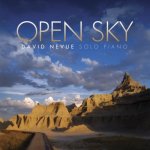 He took those remaining compositions (plus a few new ones), returned to Piano Haven Studio, and in 2013 released Open Sky, one of his most musically diverse albums. Open Sky was a musical expression of freedom, exploration and the exhilaration that comes from seeing and experiencing new things. The album went to #3 on the Zone Music Reporter charts in December 2013.
He took those remaining compositions (plus a few new ones), returned to Piano Haven Studio, and in 2013 released Open Sky, one of his most musically diverse albums. Open Sky was a musical expression of freedom, exploration and the exhilaration that comes from seeing and experiencing new things. The album went to #3 on the Zone Music Reporter charts in December 2013.
Those wonderful years traveling and touring with his wife and two children were among the best, most joyful years of his life - resulting in two albums of some of his most uplifting and inspiring work.
The "Settling into Grace" Years (2013-2019)
After years on the road, touring and performing began to lose its luster. As an introvert, David naturally tended to keep to himself, preferring to remain "invisible" in most social situations. As a concert performer however, being invisible is not an option! Trained in the art of stage performance, David learned early on how to emphasize and project an "outgoing, high-energy and entertaining" stage persona when needed. However, the mental effort required to "switch it on" and STAY ON show after show for days at a time took an emotional toll. His ability to stay "on" wore thin and each new show felt like a new emotional mountain to climb. To add to this, David's kids had made the transition from "home school" to formal public education, so going out on tour meant weeks on the road away from his family. The loneliness and discomfort of touring began to exceed the excitement, so David wisely decided to wind down his performance schedule for a while. He finished out his remaining tour dates and in October 2013, put away his travel bag, happy to be home with his family for an extended period of time.
With his mind set free from the necessity of keeping his repertoire performance-ready, his creative instincts returned and over the course of six weeks he sketched out the framework for an entirely new album of new music – aptly titled Winding Down. His approach to the new project was methodical, with the intent of creating very deliberate - and more technical - compositions. 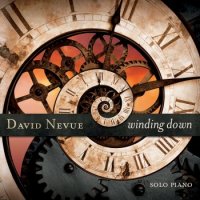 Every aspect of the album was designed with intention, from the progression of the songs to the keys the songs were played in. (You can read more about the album design process here). Recorded at Piano Haven, Winding Down was released in June 2015 to many accolades, including one of the most enthusiastic album reviews he'd ever received, which stated in part...
Every aspect of the album was designed with intention, from the progression of the songs to the keys the songs were played in. (You can read more about the album design process here). Recorded at Piano Haven, Winding Down was released in June 2015 to many accolades, including one of the most enthusiastic album reviews he'd ever received, which stated in part...
"Winding Down is pianist David Nevue's Pieta, his Mona Lisa, his Aida, his Gone With The Wind, his Sergeant Pepper's Lonely Hearts Club Band. It is his masterpiece, his crown jewel, his pinnacle of artistry. He has poured every ounce of himself into this magnificent record and it shows on every single track and during every minute. Nevue has opened a vein and bled out his soul onto the ivories... I was awestruck by the sheer emotional weight and musical beauty of the album. I don't even know how to begin describing the impact of what Nevue has achieved." - Bill Binkelman
Winding Down was nominated for Best Solo Piano Album of 2015 by both Zone Music Reporter and One World Music Radio (it won the latter!) The album went to #2 on the Zone Music Reporter charts in November 2015 and was David's first entrance into the Top Ten on the Billboard Music charts.
An Aside - David Nevue, Producer - The Whisperings Solo Piano "All-Star" Concert & Award Show / The Whisperings Artist Gathering (2013-2019)
Having wrapped up his touring at the end of 2013, David took on another task - that of producing the Whisperings Solo Piano "All-Star Concert & Award Show". The event - the biggest production he'd ever taken on - was a dream of his, bringing together talented pianists from all over the world into one massive weekend event celebrating solo piano music. A huge undertaking, David teamed up with fellow pianists Joe Yamada and Joe Bongiorno (of Piano Haven) to plan, organize and bring to life a weekend of artist activities that included "meet and greet" events, networking, music marketing workshops, opportunities to "hang out" together and of course, attend and/or perform at the main "All Star" concert event. A solo piano fans dream, the "All Star" concerts featured performances by popular artists from the Whisperings radio broadcast as well as the nominees for Whisperings "Solo Piano Album of the Year." For the concert finale, the "Album of the Year" winner would be announced, the award presented, and the winning artist cheered on by peers and fans as they performed a winner's encore. The first Whisperings "All Star" Concert debuted on January 26th, 2014 in Costa Mesa, CA and was a hit with both fans and artists. This led to events the following years in Costa Mesa, Seattle and Atlanta. In 2018, David added a second concert to the weekend festivities, a Saturday night Solo Piano "Discovery" Concert, which gave an opportunity for piano artists to play who had never before performed at a Whisperings event. Over the course of the six years David produced the event, he provided opportunites for 75 different solo piano artists to perform to hundreds of dedicated fans.
In late 2015, six months after the release of Winding Down, David's mother was diagnosed with cancer. His focus turned to her and helping her manage her disease and affairs. He was also preoccupied with producing the annual Whisperings concert events (mentioned above), which required several months each year to organize. These responsibilities left him with little creative space to explore musical ideas. When he did sit down at his piano, composing anything "worthwhile and interesting" to his own critical ears became a frustrating and monumental task. The needs of work and family, the aches and pains of age and lack of good sleep left him increasingly exhausted. On top of this, he developed a visual disfunction that triggered motion sickness when he read, drove, typed and sometimes even when he played the piano. With all that was happening, he began to wonder if Winding Down would ironically become his last album.
As his mother's health - and his own - continued to decline, David came to realize that he needed to STOP striving after the impossibly high bar of expectations he'd put on himself. A self-diagnosed workaholic and perfectionist, he had unwittingly worked himself into an unhealthy cycle of stress and sleeplessness. He knew he needed SIMPLIFY. He rededicated himself to his spiritual life and devotional time in the Bible... and started walking five miles every day. He used his "walking" time to pray, free his mind and just enjoy being outside in the fresh air. He turned to photography as a new form of artistic expression and learned to enjoy the quiet. His active decision to lay down his pride, his plans, and to submit to God's sovereigty in all things was transformative. This change of perspective extended to his time at the piano. He let go of the pretentiousness of trying to be "musically clever" and started composing again, not purposefully like before, but peaceably. In his mother's last months, his piano became a resting place for him, a place of grace. In August 2018, David's mother passed away and went to be with Jesus. 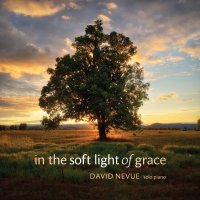 Nine months later, in May 2019, David released his sixteenth album, In the Soft Light of Grace, dedicated to the memory of his mother, Dianne Nevue.
Nine months later, in May 2019, David released his sixteenth album, In the Soft Light of Grace, dedicated to the memory of his mother, Dianne Nevue.
Two weeks after the album's release, David formally announced that he would take an extended break from organizing future Whisperings events to "focus on my own creative pursuits... explore new ideas... reinvent things... and excercise my faith." David was ready to move into a new season of life. In August of 2019, after almost six years of not "formally" touring, he started booking his own concerts again. He set up short, limited tours to promote his new release and was excited to start anew and happy to get out on the road again. He booked shows well into 2020 as part of his "In the Soft Light of Grace... and other Stories" tour. Then in March 2020, after several successful mini-tours, the COVID-19 pandemic hit, shutting down the country and most of the world.
A Paradigm Shift (2020-Current)
With the Coronavirus shutting down his tour plans, David turned to streaming concerts live from his home to fans and followers via his Facebook and Instagram feeds. He also used the downtime to catch up on Whisperings Radio-related projects, revisit and update every song in his sheet music library, and release several more sheet music songbooks.
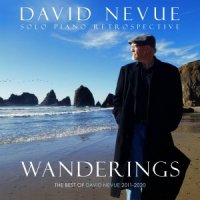 In November 2021, David released Wanderings: The Best of David Nevue (2011-2020). As with the Whisperings and Awakenings "best-of collections before it, the Wanderings collection featured popular highlights from the albums released between 2011 and 2020, specifically A Delicate Joy, Open Sky, Winding Down, and In the Soft Light of Grace.
In November 2021, David released Wanderings: The Best of David Nevue (2011-2020). As with the Whisperings and Awakenings "best-of collections before it, the Wanderings collection featured popular highlights from the albums released between 2011 and 2020, specifically A Delicate Joy, Open Sky, Winding Down, and In the Soft Light of Grace.
In the Fall of 2022, David returned to touring and played concerts in Wisconsin, Virginia, South Carolina and his home state of Oregon, where he played a concert in Coos Bay, the coastal town he grew up in, for the very first time. He also performed a landmark 30th Anniversary Concert in Tigard, OR at the same church and on the same piano where he performed his very first concert in 1992.
During COVID, David began experimenting with recording at home, trying out an assortment of mics and mic placements. After 18 months of experimentation, in May 2023, David released Faith Over Fear, his first single recorded at home and on his own piano.  On July 4th, 2023, just 47 days after its release, Faith Over Fear surpassed 1 million spins on Pandora Radio, making it David's fastest ever song to reach 1 million spins. In the months following, David released two additional singles, arrangements of the classic hymns Abide with Me, When I Survey the Wondrous Cross, and The Old Rugged Cross.
On July 4th, 2023, just 47 days after its release, Faith Over Fear surpassed 1 million spins on Pandora Radio, making it David's fastest ever song to reach 1 million spins. In the months following, David released two additional singles, arrangements of the classic hymns Abide with Me, When I Survey the Wondrous Cross, and The Old Rugged Cross.
In 2025, David and his wife Julie moved their home and piano studio from Oregon to eastern Tennessee, where they now reside. Among the many reasons for the move was the desire to be more centrally located for concert performances and touring. David is now within a two-day drive of 85% of the U.S. population, making touring significantly less challenging.
As of this update (February 2025), David is editing, mixing, and mastering music for three new albums, all of which have already been recorded. The first to be released will be an album of new hymn arrangements; the second will feature all-new original compositions; and the third is a live concert album recorded to full houses of friends and fans in his living room. Expect to see those released in 2026, 2027, and 2028.
David continues to enjoy photography and finds being outdoors and hiking an inspiration. You can view his photography on his Instagram feed. He is exploring the idea of doing more with that and perhaps expanding his definition of being an "artist" to include more than just piano art.
You can follow David's progress on Facebook, X, and/or sign up for his mailing list. If you think you might be interested in booking David for a concert in your home, church, school or other venue in the future, you can read up on how to book David for a concert here.
Any questions? Email David anytime at david@davidnevue.com.

David Nevue, circa 1997 photo shoot for The Last Waking Moment.
